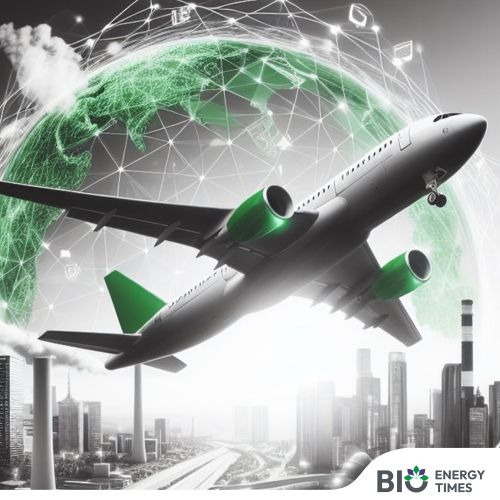Denmark’s Topsoe plans to partner with China’s Zhejiang Jianglan Bio-Energy Technology Company to build a new facility aimed at producing up to 300,000 tons of sustainable aviation fuel (SAF) annually. The plant, set to open in December 2026, will be located on Zhoushan Island, near Ningbo, and will use Topsoe’s HydroFlex technology to convert waste fats, oils, and greases into SAF, reports Green Air.
The fuel produced at the plant will initially be exported to Europe, but as demand grows within China, the supply will increase locally. This marks Topsoe’s third project in China and its second this year, following a similar agreement in January with Chuangui New Energy in southwestern China. The company’s first SAF deal in China was signed in April 2024 with Hongkun Biomass Fuel in Guangxi.
The new partnership is aligned with China’s ambitious “dual carbon” goals: to peak carbon emissions by 2030 and achieve carbon neutrality by 2060. The country is focusing on reducing its reliance on fossil fuels and expanding its green energy capacity. Through these projects, Topsoe is contributing to China’s energy transition by scaling SAF production, which could significantly cut emissions in the aviation sector.
Zhejiang Jianglan, part of the Jianglan Energy Group, is focused on advancing bioenergy solutions and becoming a leader in the green energy transition. The company’s SAF project in Zhoushan aims to create a “closed-loop full industrial chain,” from feedstock collection to efficient conversion into green fuels. It also plans to integrate with the oil and gas industrial cluster in the Zhejiang Free Trade Zone to further bolster the green fuel industry.
Topsoe’s HydroFlex technology will provide the process to purify feedstocks such as vegetable oils, animal fats, and used cooking oil. The partnership will also involve Topsoe’s licensing, technical expertise, and proprietary catalysts.
Elena Scaltritti, Topsoe’s Chief Commercial Officer, emphasized the importance of scaling SAF production to decarbonize aviation. “Our partnership with Zhejiang Jianglan is a key step in building out SAF supply and supporting global energy needs,” she said. Once operational, the Zhoushan plant is expected to prevent over 698,000 tons of CO2 emissions annually—equivalent to the emissions produced by flying 2 million passengers between Beijing and Copenhagen.














